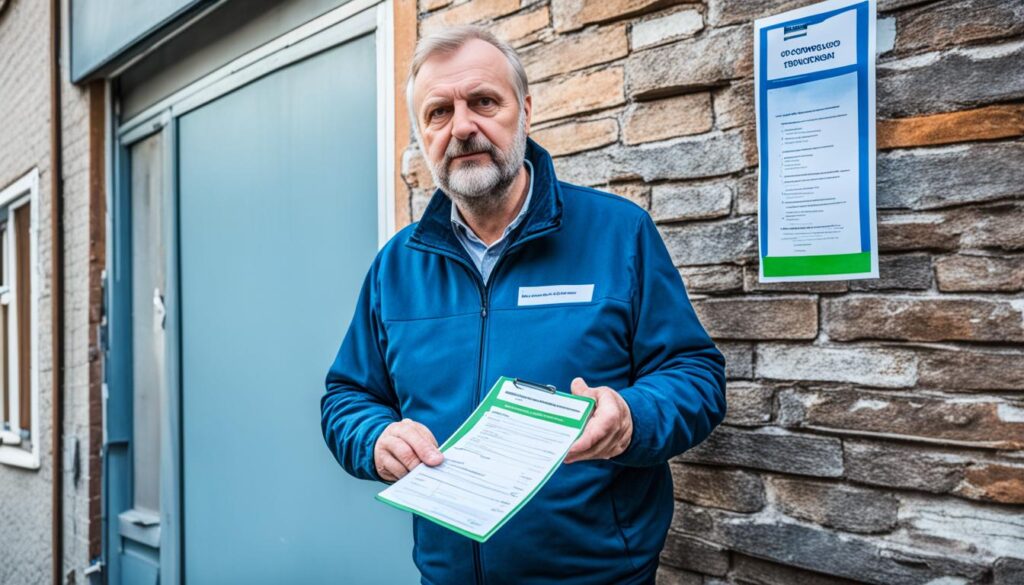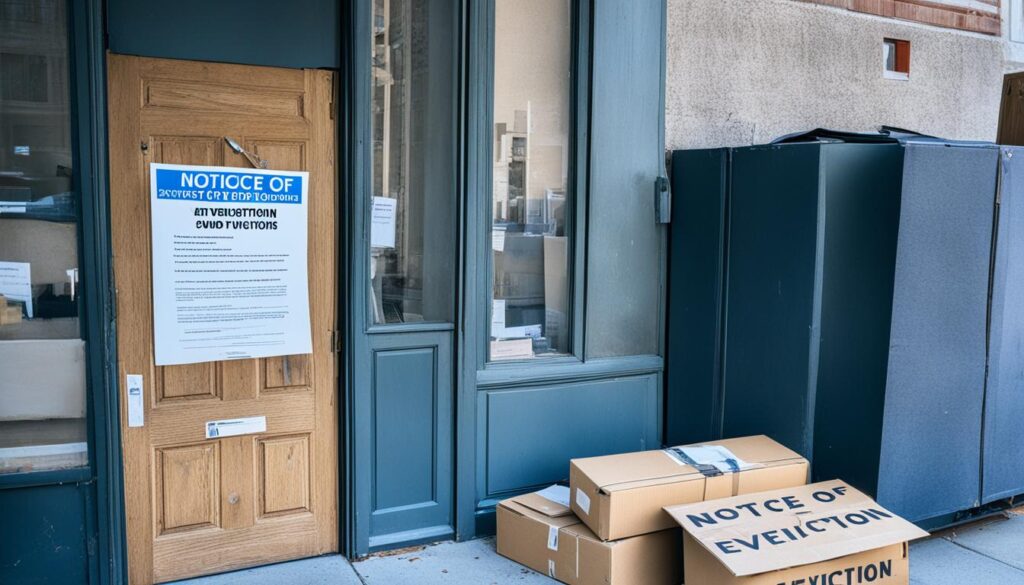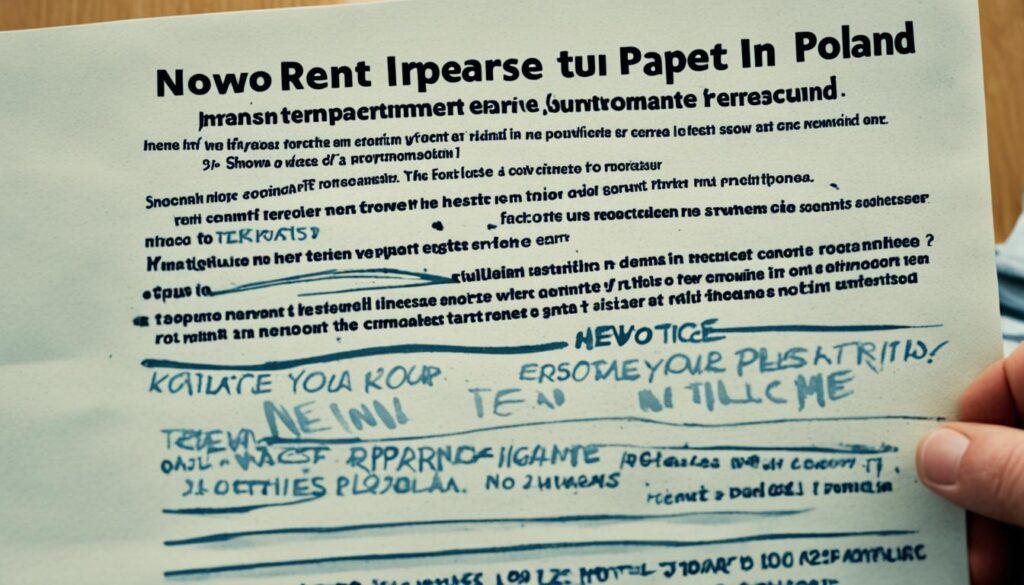Renting in Poland is an evolving landscape, particularly highlighted by the significant increase in rental properties available in Gdańsk, as evidenced by recent data from the Otodom portal. As of October 2023, potential tenants searching for flats in Gdańsk found 1325 listings, a stark rise compared to the mere 179 results seen in the summer of 2022.
Understanding tenant rights in Poland is crucial to navigating this dynamic rental market. Both regular residential leases and occasional rental agreements offer different levels of protection for tenants and landlords. The latter, known as “Umowa najmu okazjonalnego,” allows landlords to initiate eviction processes sooner if tenants default on their rent.
Polish rental laws stipulate that non-payment of rent for over two months is a common ground for lease termination. In such cases, landlords must go through legal protocols to enforce eviction, ensuring tenant rights are preserved. Therefore, both parties often seek legal advice, particularly in major cities like Warsaw, to comprehend the intricacies of these laws.
Key Takeaways
- A noticeable increase in Gdańsk rental listings from Otodom suggests a vibrant rental market.
- There are two main types of leases in Poland: regular residential leases and occasional rental agreements.
- Non-payment of rent for over two months can lead to lease termination under Polish rental laws.
- Legal assistance is often sought in major Polish cities to navigate rental agreements and eviction protocols.
- Occasional rental agreements offer additional eviction measures to landlords if renters fail to meet obligations.
This introduction provides a clear overview of key aspects of renting in Poland, ensuring that it is informative yet concise. The integration of specified SEO relevant keywords enhances the text’s visibility while staying authentic and coherent.
Understanding Rental Agreements in Poland
When delving into rental agreements in Poland, understanding the intricate details of Polish lease contracts is essential. These agreements define tenant and landlord responsibilities, ensuring a smooth rental experience.
Key Elements of Rental Agreements
Polish lease contracts include vital components aimed at safeguarding the interests of both parties. A well-drafted agreement should encompass:
- Details of the involved parties – landlord and tenant.
- Clear identification of the rental property.
- Terms regarding the lease duration, often requiring specific end dates or appropriate termination notice periods.
- The agreed-upon rent amount and schedule for payments.
- Provisions for utilities and other associated costs.
- Descriptions of tenant and landlord responsibilities, such as maintenance duties and repair obligations.
Required Documentation
Ensuring legal compliance, required documentation must accompany any rental agreements in Poland. Having a robust paper trail is crucial:
- Identification Documents – Both parties must provide valid IDs to establish identity and address.
- Proof of Ownership – Landlords should present documents establishing their ownership of the property.
- Contract Forms – Poland recognizes three types of contracts: civil law contract, occasional tenancy agreement, and institutional tenancy agreement. Each serves different needs and must follow legal guidelines.
- Insurance Papers – Tenants are encouraged to have insurance to cover potential damages.
In conclusion, rental agreements in Poland are comprehensive documents that outline Polish lease contracts, while emphasizing tenant and landlord responsibilities. Ensuring all necessary documentation is in order is pivotal for maintaining legal standing and mitigating potential disputes.
Tenant Rights and Responsibilities
Understanding tenant rights and responsibilities is crucial for anyone renting in Poland. Both tenants and landlords share certain duties to ensure a smooth rental experience. Awareness of these obligations facilitates a stress-free living environment and helps avoid legal complications.
Maintenance and Repairs
Landlords in Poland bear the primary responsibility for property maintenance, especially for essential services such as heating, plumbing, and electrical installations. Any necessary repairs to important components like sewage systems or electrical wiring fall under the landlord’s obligations. However, if damages occur due to tenant negligence, the tenant must cover the repair costs. Tenants should maintain cleanliness and regular upkeep of the rental property to prevent deterioration and fulfill their responsibilities.
Permissible Changes to the Apartment
When it comes to making changes to a rental property, tenants must exercise caution. Any upgrades or alterations require written approval from the landlord and should be reversible. This ensures the apartment can be returned to its original condition at the end of the lease. Tenants must adhere to these guidelines to maintain a positive rental relationship and avoid legal disputes. For more detailed information on household regulations, refer to this comprehensive guide.
By understanding and fulfilling their responsibilities, tenants can enjoy a more harmonious and legally compliant rental experience in Poland.
Landlord Obligations and Limitations

Renting an apartment in Poland comes with clear-cut responsibilities for landlords. Polish law mandates landlords to ensure the property is well-maintained and habitable, addressing both their maintenance responsibilities and their property right of entry.
Essential Repairs and Maintenance Responsibilities
Landlords in Poland must manage essential repairs and upkeep to guarantee the apartment’s livability. Maintenance responsibilities include addressing critical elements like heating systems, radiators, and vital appliances. Additionally, maintenance of common areas and the building itself is often managed by homeowners associations, of which landlords are typically members. This division of responsibilities ensures that both private and shared spaces remain functional and safe for the occupants.
Access to the Property
Polish rental laws make it clear that landlords do not possess unilateral access to the property. The property right of entry must be defined within the lease agreement. Generally, landlords need to schedule and notify tenants before any inspections, barring emergencies that pose immediate risks where immediate access might be necessary. This limitation protects tenant privacy, upholding tenant rights against unwarranted entry.
Overall, landlord obligations in Poland ensure a balance between maintaining property standards and respecting tenant privacy, fostering a healthy landlord-tenant relationship.
Security Deposits

One of the primary components of rental agreements in Poland is the security deposit. Typically, security deposits in Poland range from one to three months’ rent. Their terms and conditions are laid out clearly in the rental agreement, including the exact deposit conditions and stipulations for the refund of security deposit.
Deposit Amount Limits
Most landlords in Poland require a security deposit equivalent to one to two months’ rent. For instance, in cities like Warsaw, Krakow, Wroclaw, Gdansk, and Poznan, this amount is generally aligned with the rental prices of one-bedroom apartments, which range from PLN 1,600 to PLN 4,500 per month depending on the location and amenities. It’s crucial to have these deposit conditions documented in the lease to ensure clarity for both parties.
Moreover, the deposit is intended to cover any damages beyond standard wear and tear. Unauthorized changes or significant damages to the apartment can lead to deductions from the security deposit to restore the property to its original condition.
Conditions for Return
The conditions for the refund of security deposit are to be adhered to strictly. Landlords in Poland must return the deposit within 30 days after the tenant vacates the premises. This period is deemed reasonable to allow for the inspection and potential repair of any damages. Tenants can secure their deposit refund by ensuring the property is in a comparably good state as it was at handover, considering normal usage.
An important aspect of the rental agreement is documenting the premises’ condition at the handover. This practice helps eliminate disputes over what constitutes acceptable wear and tear. You can find more information about these agreements here.
The rental landscape in Poland underlines the importance of clear contract terms, including all necessary details about the security deposits in Poland to protect the interests of both landlords and tenants.
Eviction Laws and Procedures in Poland

Understanding eviction laws in Poland is crucial for both landlords and tenants. These laws clearly outline the eviction grounds and the legal process required to enforce them. The procedures ensure that both parties are aware of their rights and responsibilities, minimizing disputes and guaranteeing fair treatment.
Grounds for Eviction
The primary eviction grounds in Poland include non-payment of rent and violations of the rental agreement. If tenants sublease the property or cause significant damage, landlords may seek eviction. Approximately 25% of eviction cases arise from contract breaches, a common issue in major cities such as Warsaw and Kraków. Statutory periods for eviction notices are also explicit, such as a one-day notice for one-time rent agreements and up to three months for less frequent payments.
Legal Process and Enforcement
The enforcement of eviction in Poland often involves a court eviction judgment when agreement termination is contested. Early termination of rental agreements necessitates written notice, providing at least a one-month warning. Notably, forced evictions are rare and typically require police assistance. The formal procedures guarantee clear communication and legal grounding, reflected in detailed documentation requirements and substantial notice periods.
A well-understood legal framework for eviction laws in Poland benefits both parties, ensuring orderly processes and transparency. Adhering to these regulations allows for smooth transitions, respecting both tenant and landlord rights within the rental arrangement.
Rent Increases and Notice Periods

Understanding the legal requirements for rent increases in Poland and the notice periods for lease termination is crucial for both tenants and landlords. These regulations are designed to protect the rights of all parties involved while ensuring fair rental practices.
Legal Requirements for Rent Increases
In Poland, landlords are permitted to increase rent; however, they must adhere to specific legal requirements. Rent increases in Poland are capped at 3% of the restoration value of the residential space per year. This limit helps prevent excessive and sudden hikes in rental costs, offering stability for tenants.
Landlords must notify tenants of any rent increase no later than the last day of the month prior to when the increase takes effect. Tenants have the right to dispute these increases within two months, and if an agreement cannot be reached, they may choose to vacate the property.
Comparatively, other countries implement rent control measures differently:
| Country | Rent Increase Limit | Additional Information |
|---|---|---|
| Poland | 3% annually | Capped at the restoration value of the residential space |
| Ireland | 4% annually | In designated “Rent Pressure Zones” |
| Italy | 100% of ISTAT index variation | Based on the National Institute of Statistics index |
| Germany | 20% over three years | Additional rent brake in Berlin |
| Spain | CPI based | Proposed controls to limit increases to Consumer Price Index |
Notice Period for Rent Termination
The notice period for lease termination in Poland typically spans three months, providing tenants with ample time to find alternative accommodations. This notice period helps ensure that lease termination processes are fair and transparent.
Although landlords must provide adequate notice, tenants also have the right to early termination under certain conditions. This balance of tenant and landlord rights is crucial to maintaining a fair and equitable rental market in Poland.
Conclusion
Renting in Poland requires a comprehensive understanding of the tenant rights, landlord duties, and legalities surrounding eviction. One of the critical aspects is navigating rental law and ensuring that renter-landlord agreements meet all legal requirements. Tenants and landlords alike must familiarize themselves with various rental agreements, whether occasional or standard, and understand their unique stipulations. For instance, an occasional lease must be concluded in writing and can last no longer than 10 years, and it requires tenants to indicate an alternative place to live within 21 days of losing the right to stay in the rented premises.
Security deposits in Poland are closely regulated. For occasional rentals, the deposit cannot exceed six months’ rent and must be returned within a month after deducting any due amounts. It’s crucial for both parties to keep meticulous records of payments and agreements to facilitate transparent and smooth transactions. Aspects such as the permissible rent increases, notice periods, and the procedures for eviction highlight the importance of legal guidance in renting. Engaging professional legal services in Poland’s major cities can provide valuable assistance and representation in rental disputes and negotiations.
Furthermore, the role of various housing support programs like the Social and Municipal Housing Support Program (BSK) and the Housing Construction Support Program (SBC) are vital for economically disadvantaged groups. The National Housing Programme aims to expand the number of flats, enhance energy efficiency, and improve living standards. As Poland’s housing market evolves, these initiatives serve as a foundation for future developments. This guide to renting in Poland aims to empower both tenants and landlords with essential knowledge for navigating rental law effectively and ensures that renter-landlord agreements are fair and legally compliant, thereby fostering a more stable and transparent rental market in Poland.
FAQ
What are the essential elements of rental agreements in Poland?
What documentation is required for rental agreements?
What are the responsibilities of tenants regarding maintenance and repairs?
Can tenants make changes to the apartment?
What maintenance responsibilities do landlords have?
Can landlords access the rental property at any time?
What limits apply to security deposit amounts in Poland?
Under what conditions are security deposits returned?
What constitutes grounds for eviction in Poland?
What is the legal process for eviction?
What are the legal requirements for rent increases?
What are the notice periods for rent termination?
Source Links
- https://findingpoland.com/renting-an-apartment-in-poland/
- https://www.lexology.com/library/detail.aspx?g=125f152a-9fc6-499b-9cb6-ffe1c178f6db
- https://wellcome-home.com/guide/tenancy-laws-in-poland/
- https://littlehome.pl/everything-you-need-to-know-about-the-tenancy-agreement-in-poland/
- https://wellcome-home.com/guide/11-questions-to-ask-your-polish-landlord-before-you-sign-rental-agreement/
- https://ceelegalmatters.com/real-estate-2021/real-estate-poland-2021
- https://www.linkedin.com/pulse/what-property-managers-landlords-must-know-tenant-confidentiality-aoh6c
- https://flextogo.com/en/blog-post/renting-a-car-while-traveling-to-poland-what-to-watch-out-for
- https://billberry-apartments.pl/en/blog/important-for-tenants
- https://www.expatfocus.com/poland/guide/poland-property-rental-prices
- https://wellcome-home.com/guide/lease-agreement-and-formal-aspects-of-a-flat-rental/
- https://unreal-estate.pl/en/blog/article-7
- https://englishwizards.org/guides/guide-to-finding-accomodation/
- https://www.iut.nu/wp-content/uploads/2021/04/b017e9d8-ccda-4974-b4ab-e455010aa32d-1.pdf
- http://www.iut.nu/wp-content/uploads/2017/03/National-Report-for-Poland.pdf
- https://lionsestate.pl/en/occasional-lease-what-is-it-and-how-does-it-work/
- https://www.gov.pl/web/development-technology/housing-policy-in-poland
- https://www.nortonrosefulbright.com/en/knowledge/publications/652dba73/ownership-of-premises-in-poland-legal-framework

Comments